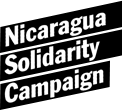Minimum wage talks break down
NSCAG News |
on: Friday, 21 February 2014
Tri-partite talks on raising Nicaragua’s minimum wage broke down when one of the parties to the discussion—the business sector—refused to agree with government and labour representatives that wages in the sector of micro, small and medium sized businesses should be raised 10%, insisting on only a “one digit” raise. As a result, along with the Labour Ministry, only representatives of trade unions and the National Chamber of Small and Medium Industry and Artisanry (CONAPI) signed the agreement on Feb. 6.
Zacarias Mondragon, representative of the Nicaraguan Council of Micro, Small, and Medium Business (CONIMIPYME) said that, even though members disagreed, they would have to go along with the wage hike. Other news outlets reported, however, that he stated that CONIMIPYME would not recognize the 10% raise and would continue to propose 8%. Jose Adan Aguerri, president of the Superior Council of Private Business (COSEP), generally considered to represent big business, rejected the agreement and said, “If the government decided to apply this increase with the signature of a representative that has no influence in the private sector, it will be the government’s decision and it will see what the result of this negotiation is in the future.” He also said that conversations were not over given that only 30 days of the 60 allotted for talks had passed. However, when talks resumed on Feb. 13, the business sector left the table and no progress was made.
Roberto Gonzalez, General Secretary of the Sandinista Workers Central (CST), said that he had requested a meeting with COSEP but that Aguerri would not agree to meet. National Workers Federation (FNT) leader Jose Angel Bermudez said that COSEP was using methods of blackmail to affect minimum wage talks and he denied that workers would lose jobs as Aguerri predicted if wages in the small and medium business sector were to be raised by 10%. Bermudez added that workers were not looking for a raise but rather for an adjustment that would allow them to recuperate buying power that has been lost during the year due to price hikes on basic goods. The National Bank announced on Feb. 11 that the basket of basic goods for a family had risen in January from US$441 to US$455.





